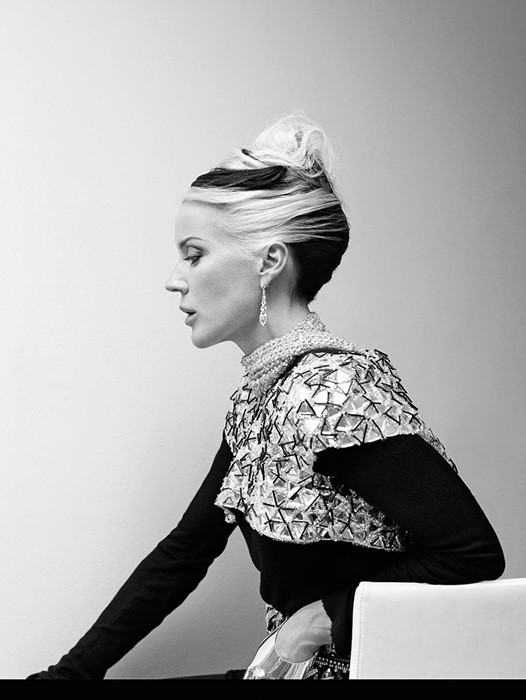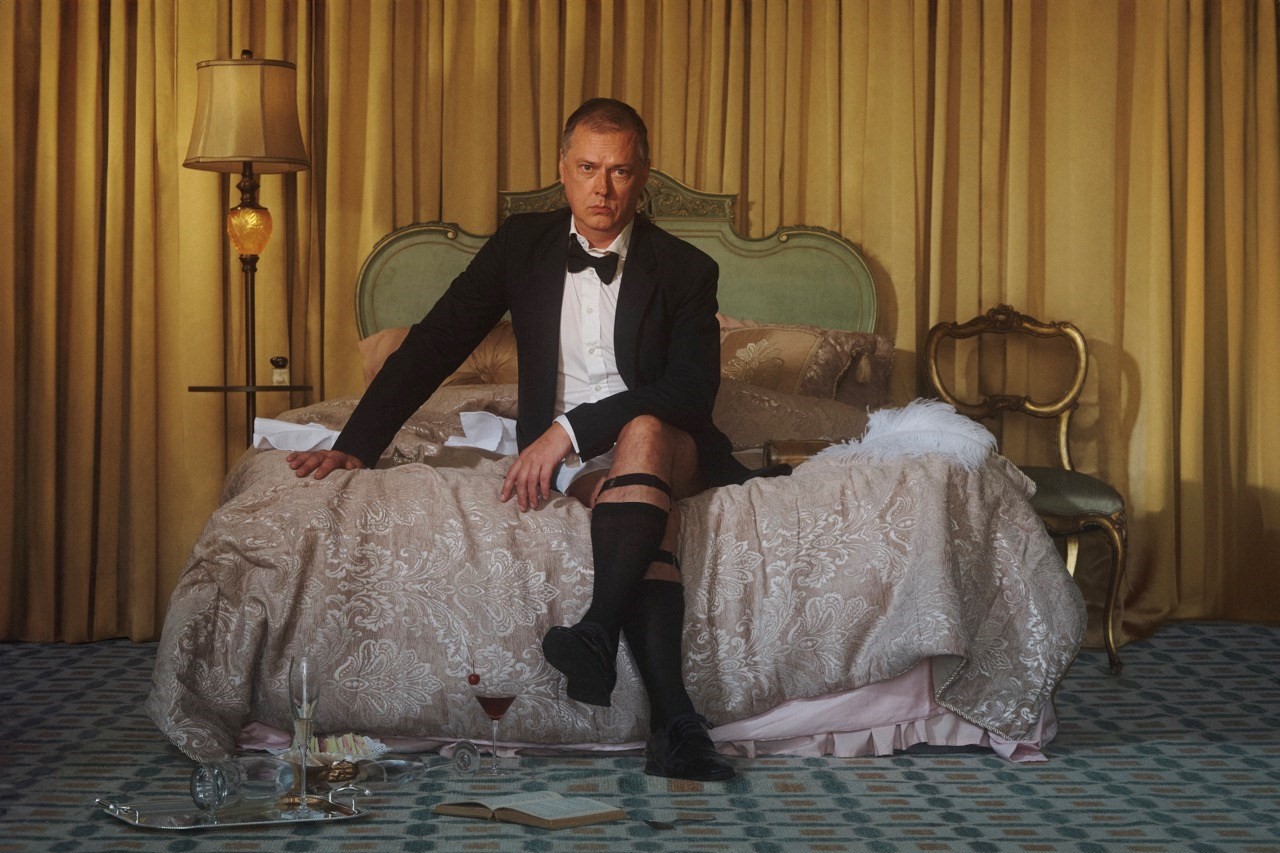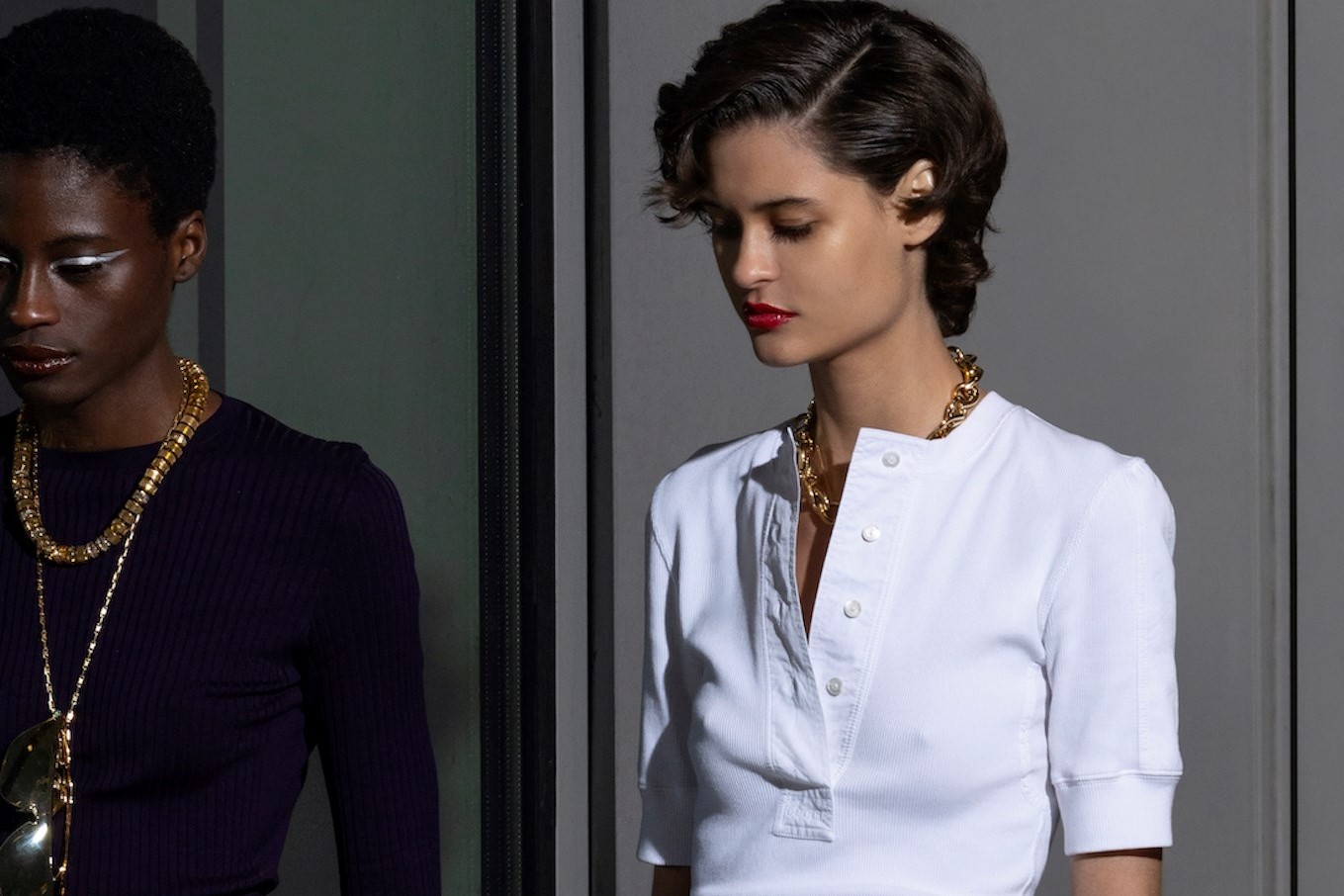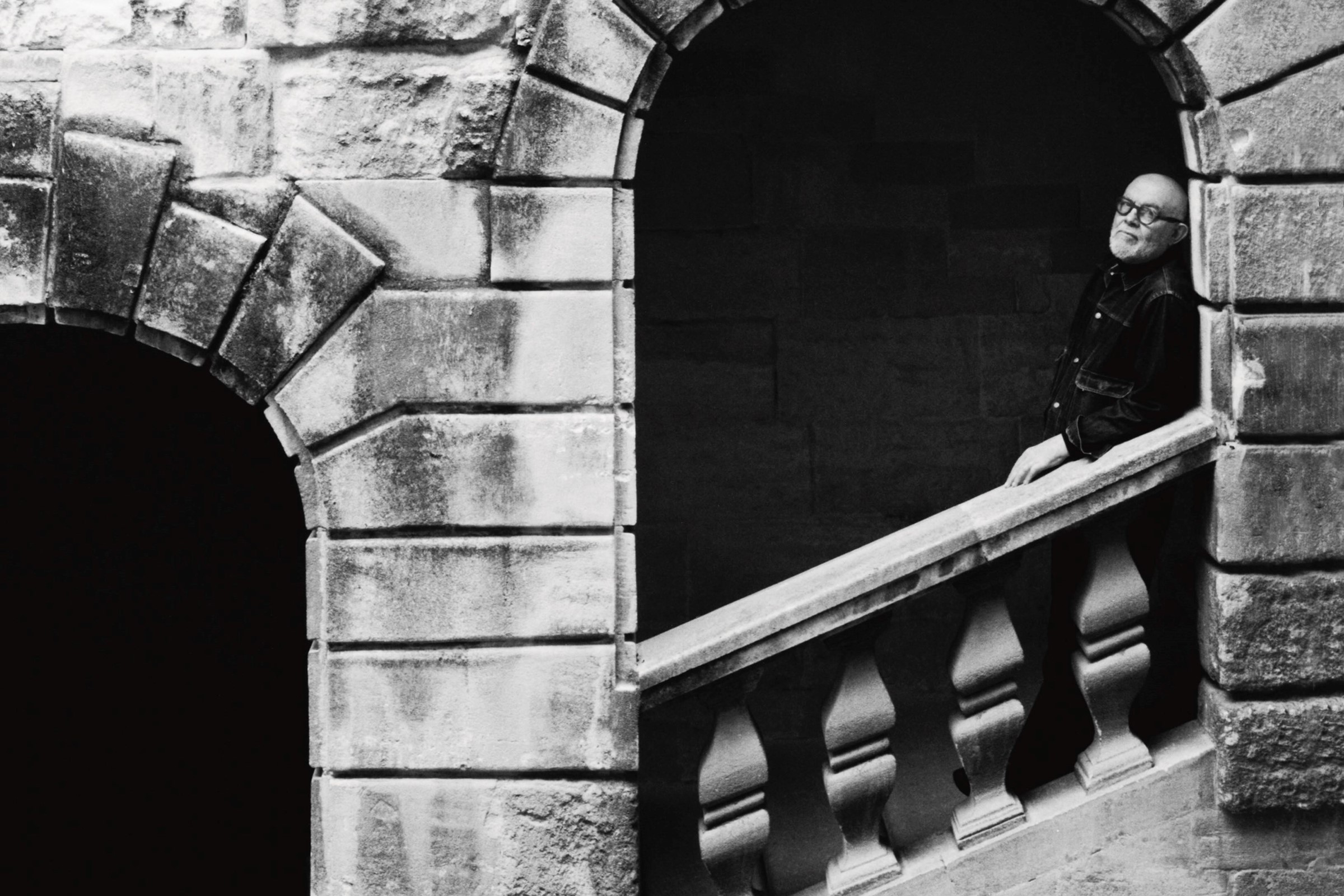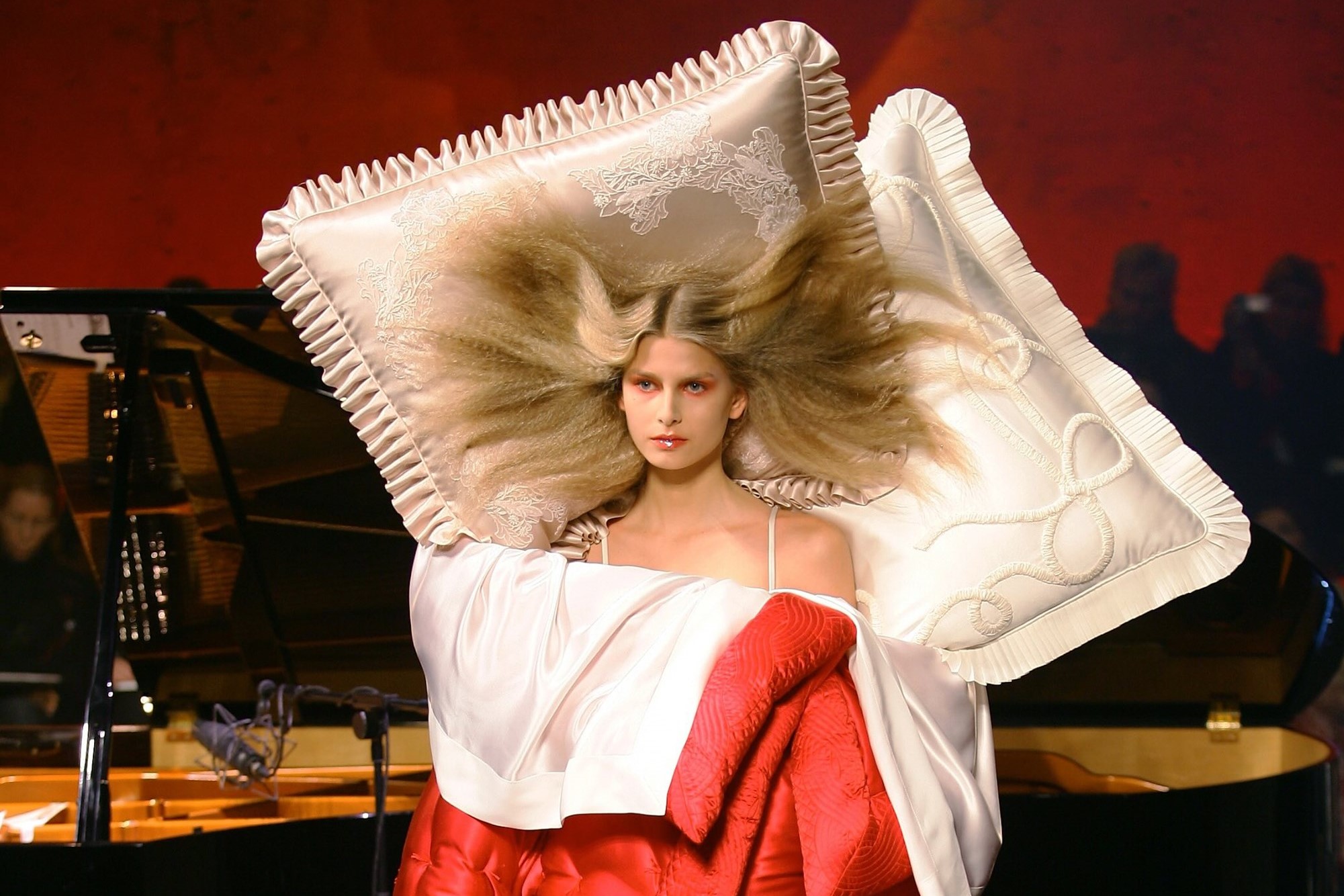As a new show celebrates the world of Isabella Blow, we reflect on the icon with her friend and fellow fashion obsessive Daphne Guinness
“Her effect was like an umbrella opening in a phone booth,” wrote the New York Times’ Cathy Horyn of the highly influential aristocrat and stylist, Isabella Blow who tragically took her own life in 2007; “But the perfect umbrella in finest silk.” A decade before bloggers would compete with editors to turn fashion week into a media circus, Blow was an effortlessly commanding presence on the front row: perhaps in a fantastical Alexander McQueen creation, topped off with a jewel-encrusted lobster by Philip Treacy on her head and of course, her signature carnation red mouth, honking laugh and wicked sense of humour that once led McQueen to describe her as “a cross between a Billingsgate fishwife and Lucretia Borgia.”
Isabella Delves Broughton was born in 1958 to a life of great privilege, but one also more than a little tinged with tragedy – her parents’ divorce, the death of her young brother from drowning, the suicide of her grandfather Sir Jock Delves Broughton and her eventual disinheritance by her father Sir Evelyn Broughton from the family fortune when he remarried. After marrying Detmar Blow, Blow worked her way up from fashion assistant at Vogue to Tatler and eventually style director at Sunday Times Style magazine. But it was her aesthete’s eye for detail and voracious appetite for fashion (which she once compared to a “pig snuffling out truffles”) that would cement her powerhouse reputation: she’s been credited with discovering the models Sophie Dahl and Stella Tennant, and was a fearless champion, muse and catalyst for the talents of Treacy, Jeremy Scott and McQueen whose entire MA collection she bought and then slowly paid back in instalments. With McQueen especially, her relationship could be stormy, tumultuous but never anything less than passionate: McQueen once remarking, “She’s like a disease. A terminal disease. Everything she does rubs off on you.”
"McQueen once described Isabella Blow as 'a cross between a Billingsgate fishwife and Lucretia Borgia'"
This autumn, the fashion world will pay tribute to her extraordinary legacy with a retrospective opening at Somerset House, Isabella Blow: Fashion Galore! featuring more than 100 pieces from her private collection that was famously purchased by her longtime friend, the heiress and artist, Daphne Guinness to preserve it in perpetuity after her death. Not only does Guinness have a bloodline that collides with Blow, but she belongs to the same grand tradition of true eccentrics whose entire existence is dedicated to artistic expression. She is also the founder of the Isabella Blow Foundation which raises money to promote fashion, and funds selected charities that promote mental well being. Here, she shares with AnOther her memories of Issie.
Your great-grandfather, Walter Guinness was once involved with Isabella’s grandmother, Lady Vera Delves Broughton and you first met at the 90th birthday of your cousin. What is your memory of that first encounter with Isabella and what struck you about her?
I actually first met Isabella at a party when I was much younger, around 16 years old. Officially, though, we met in 1998. God knows what I was wearing, but she made a joke of it. She said I looked like a grasshopper. I liked her immediately; she made me roar with laughter.
What’s your favourite memory of Isabella?
There are many. Mostly I recall her kindness. She was the kind of person who talked her way into the smartest restaurants, charm was her currency – but she would give away her last fiver if she felt someone needed it more.
You once talked about dressing up as ‘a form of defence’ while Isabella once was quoted as saying, “Fashion is a vampiric thing. It's the hoover on your brain.” Did you see any similarities in how each of you approached fashion as an extension of self?
I think we shared a love of creativity; neither of us was interested in the commercial aspect of the fashion industry. Isabella welcomed me onto some of her shoots at Tatler – before that, fashion had always been a private thing for me. We shared a strong sense of our our style; we both knew what we liked.
Isabella was renowned for her fearlessness and her passion for discovering new talent but what would you say was her greatest gift after her passing?
Her greatest gift was her vision. It was realised in her lifetime and continued to flourish after her death. Much of what we see on Britain’s fashion stage today is there – indirectly or otherwise – as a result of her influence. Her legacy was her work: catalogued in the shoots she did and the extensive collection she acquired. The aim of The Isabella Blow Foundation is to pay tribute to, and continue that legacy.
Working with Alistair O’ Neill on the exhibition at Somerset House, were there any surprising revelations you learnt along the way?
I didn’t know Alistair before this exhibition. He has done nothing but impress me with his investigative powers and vigorous intellect. He and Shonagh Marshall have uncovered all kinds of things, spanning Isabella’s entire life. I could barely sit still for excitement when they showed me their curatorial presentation. That there are so many parts to it is a testament to her experience.
What do you think she’d make of this exhibition at Somerset House now?
I think she’d have loved all of the attention. I hope she’d be touched at the recognition. It’s well deserved.
Somerset House presents Isabella Blow: Fashion Galore! in partnership with the Isabella Blow Foundation and Central Saint Martins from 20th November – 2nd March 2014.
Text by Kin Woo
